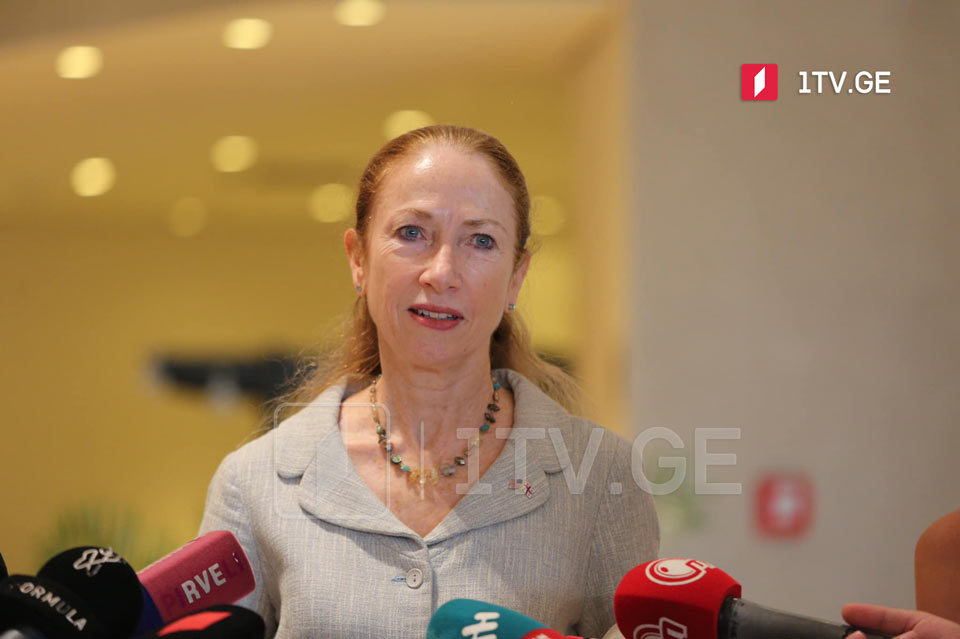Rule of law and impartial judiciary to be prerequisite for joining NATO, EU, Ambassador Degnan says
US Ambassador to Georgia Kelly Degnan said she was glad to hear from judges that they were ready to work with everyone to improve Georgia’s judicial system. The Ambassador stressed that the rule of law and strong, impartial judiciary was a prerequisite for joining NATO and the European Union.
“We were very glad to see the judges’ comments that they are ready to work with everyone to improve Georgia’s judicial system. The United States and other international donors have been helping Georgia do just that – improve the judicial system for over 25 years. This is because the rule of law and a strong impartial judiciary is prerequisite for joining NATO and the European Union. Now Georgia’s political leaders also agreed to ambitious judicial reform through a broad, inclusive multi-party process. The April 19th Agreement lays out the roadmap for doing that, including pausing the Supreme court appointments until there has been broad, inclusive multi-party discussion and consultation regarding what judicial reform should look like to strengthen and improve Georgia’s judiciary. In that respect, I think we’re all hoping that that debate, those consultations in a working group, can happen soon with all the stakeholders, civil society, professional organizations, the political parties. That is what Georgia’s political leaders agreed to do in the April 19th agreement. There were no side agreements, no secret agreements. It’s right there in the April 19th agreement,” Degnan said.
Further speaking about the nomination of the Supreme Court justices, the US Ambassador said that the High Council of Justice put forward its nominations but, it is up to the parliament to uphold the April 19th Agreement and pause the process.
“It’s now in the hands of the parliament to uphold the agreement that the MPs signed, that the political leaders signed on April 19th, which includes a clear provision to pause the Supreme Court appointment process until there has been a broad, inclusive multi-party consultation regarding judicial reform. The agreement lays out a roadmap for the kind of judicial reform that’s needed, including an assessment of the third and fourth waves to see how that’s being implemented, where it needs further improvements. This should be done in a collaborative and consultative way similar to what was done with the electoral reform. That is what the parties agreed to do. And I think that’s all people are expecting to happen now that the ball is basically in the parliament’s court. Parliament has the authority to pause this process now,” the US Ambassador declared.

